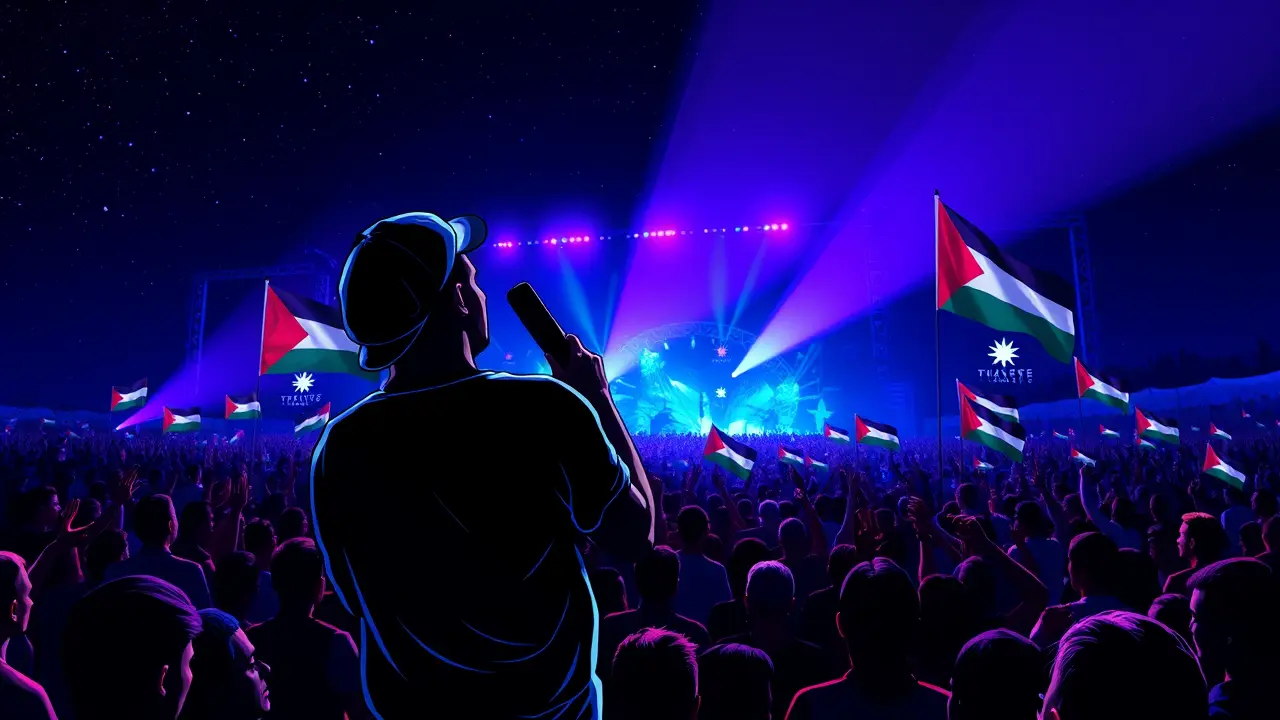Rapper Bobby Vylan Discusses Glastonbury Chant Controversy.
The verdant fields of Worthy Farm, a temporary city of sound and spectacle, have long been a stage for more than just music; they are a barometer for the cultural and political currents of the moment, a place where art and activism often share the same amplifier. This past June, that tradition was upheld with potent, unscripted force when rapper Bobby Vylan, amidst the sonic fury of his Glastonbury set, led the sprawling crowd in a chant that would reverberate far beyond the festival's boundaries.The call was stark and unambiguous, a two-part incantation that first pleaded “Free, free Palestine” before pivoting to the more confrontational and chilling “Death, death to the IDF. ” This wasn't a subtle lyric woven into a bridge; this was a direct, pulsing mantra, a moment of collective voice that transformed a musical performance into a political rally, echoing the kind of raw, unfiltered protest that has defined folk and punk stages for decades.The immediate aftermath was a predictable digital firestorm, splitting observers into entrenched camps. On one side, supporters hailed Vylan as a courageous voice for the oppressed, using his platform on one of the world's most visible stages to highlight what they see as a humanitarian catastrophe and an ongoing occupation, drawing a direct line from the protest anthems of The Clash to this modern-day invocation.For them, the chant was a necessary disruption, a refusal to allow the escapism of a festival to whitewash a dire global reality, a moment where the conscience of the artist overruled the setlist. Conversely, critics and several Jewish groups condemned the specific wording of “Death to the IDF” as a blatant incitement to violence, arguing that it crosses a critical line from legitimate political criticism into hateful rhetoric that targets the soldiers of a sovereign nation, many of whom are conscripts.This, they contend, creates an atmosphere of intimidation and antisemitism, leveraging the energy of a massive crowd to endorse a violent sentiment, a stark contrast to more generalized calls for peace or freedom. The controversy taps into a much deeper, more complex debate about the responsibilities of an artist, the limits of free speech on a private platform, and the very nature of protest music in the 21st century.Glastonbury itself has a rich history of political statements, from the Campaign for Nuclear Disarmament logos of its origins to Billy Bragg's workers' rights speeches, but the specific, targeted nature of Vylan's chant pushes into newer, more volatile territory. Festival organizers, as is often their delicate dance, were left in a familiar bind—simultaneously championing artistic freedom while managing the reputational fallout and potential security concerns such pronouncements can ignite.The incident forces a uncomfortable question: in an era of instantaneous global amplification, does the artist's right to protest from the stage outweigh the platform's potential complicity in broadcasting messages that some construe as hate speech? There is no easy resolution, no clean chord to end this song. Bobby Vylan’s Glastonbury moment stands as a powerful, dissonant note in the summer's soundtrack, a reminder that even amidst the shared joy of music, the world's most intractable conflicts have a way of finding the spotlight, demanding to be heard, and leaving a divided audience to wrestle with the echo long after the final feedback has faded.
It’s quiet here...Start the conversation by leaving the first comment.
© 2025 Outpoll Service LTD. All rights reserved.
